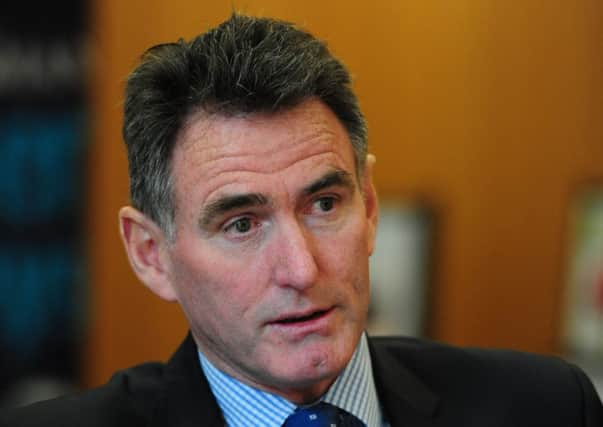RBS targets trust as six-year losses total £46bn


It brought the total RBS has lost since it was bailed out in the 2008 financial crisis to £46bn – £1bn more than the taxpayer had to stump up for the rescue.
Ross McEwan, group chief executive since last October, said: “We need to recognise that we are not yet a strong enough bank that can be privatised at a profit for the taxpayer in the immediate future. The journey to recovery is harder than was first anticipated in 2008.”
Advertisement
Hide AdAdvertisement
Hide AdThe latest loss was higher than the £5.3bn deficit in 2012, and significantly more than the £7.2bn consensus expectation in the City.
RBS’s shares closed down 27.4p or 7.7 per cent to 326.6p. Marc Kimsey, senior trader at Accendo Markets, said: “The [RBS] selling pressure this morning is immense, investors cannot get rid of their shares quick enough and traders are substantially adding to short positions.”
“Shorting” of a stock is selling shares that you don’t own in the expectation they have further to fall and you can buy them cheaper than you agreed to sell them.
RBS’s losses came after taking a £3.8bn hit for a string of scandal-related charges that McEwan said had contributed to the group being “the least trusted bank in the least trusted sector in the entire marketplace”.
He said that, as part of a fundamental overhaul to increase efficiency and restore customer trust, its divisions would be cut from seven to just three: retail, commercial and corporate.
Its investment banking arm would be folded into corporate to support big customers, but would retain highly successful businesses such as foreign exchange trading, McEwan added.
Addressing an audience of employees and customers at a new small business hub funded by RBS in east London, he said he wanted RBS to become “the best, not the biggest” bank.
He said RBS would axe teaser rates of interest for new customers, including zero per cent balance transfers on credit cards.
Advertisement
Hide AdAdvertisement
Hide AdThe former were unfair to long-standing customers who did not qualify, and zero balance transfers could trap people in a spiral of debt, McEwan added, branding them “abhorrent”.
RBS would also roll out a team of business banking representatives in high street branches to improve service to SMEs, he said.
McEwan admitted that the plans to cut costs at the bank by £5.3bn over the next three to four years would “have staffing ramifications” – but declined to put a firm figure on it at this early stage.
RBS revealed that it paid out £576m in bonuses for 2013, down from £679m in 2012 – but sparking criticism from leading Lib-Dems Nick Clegg and Vince Cable about
bonuses for losses.